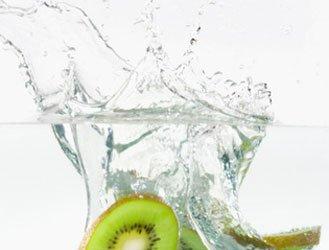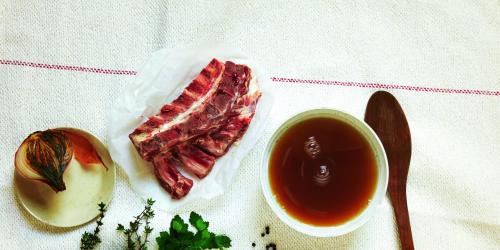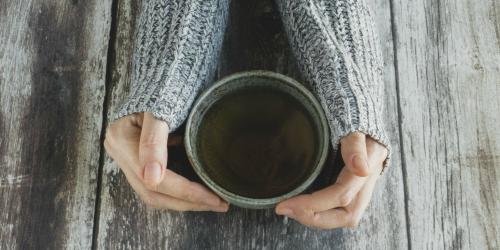Ultradigest: The lawyer
Draining: The kiwi
Detox: The juice of grass
Anticholesterol: The zucchini
Good for the heart: The purslane
Fiber in stock: Green pepper
Ultra-protective: Cabbage
Energetic: The peas
Vitalisantes: Algae
Oxygenating agents: Spinach
If a spinach leaf was dehydrated, it would remain a dry matter containing 1% chlorophyll.
Interest? This pigment, which ensures the photosynthesis, therefore the growth of the plant, has "a chemical structure similar to that of hemoglobin and, like it, it could improve the oxygenation of the different tissues of the body", explains the dietician Angélique Houlbert.
Organic: Spinach, like all leafy vegetables, concentrates nitrates more strongly than others.
Our prescription : 5 times a week. But we can alternate with beets or chard, of the same family.
Ultradigest: The lawyer
It has green color only because the avocado is not a vegetable but a fruit (it has a nucleus). It is quite fat (14 g of fat in 100 g, a half-avocado) but devoid of cholesterol.
Its fats are mostly "mono-unsaturated" (omega 9 as in olive oil or foie gras). It also provides a lot of fiber (6.7 g / 100 g) and facilitates transit.
Our prescription : 1 per week.
Draining: The kiwi
It owes its pretty color to chlorophyll. Unlike most fruits and vegetables, when ripening, it keeps intact this green gold.
Moreover, potassium source, it contributes to the good balance sodium / potassium, important for our cells and to avoid water retention.
In addition, a study showed that one kiwi a day was reducing the oxidative stress, responsible for the accelerated aging of our cells.
Our prescription : 1 per day.
Detox: The juice of grass
Extracted from germinated seeds of wheat or barley, it contains up to 70% of chlorophyll.
Naturopaths often emphasize its anti-infectious, detox, but also vitalising (useful in case of fatigue, anemia ...). "In addition, chlorophyll would restore our acid-base balance, disrupted by excessive consumption of meat, refined grains, etc. "Says the dietitian Angélique Houlbert.
Our prescription : the morning fasting, in cure of 3 weeks (shop diététique). Be careful, brittle bellies can balloon.
Anticholesterol: The zucchini
This fruit vegetable is eaten unpeeled, so young, before its green skin turns to crocodile skin. It brings us rutin, a flavonoid (anti-oxidant) that could, in any case in vitro, help us fight against bad cholesterol.
Our prescription : to consume every day, noon and evening, alternating with other vegetables, not necessarily green.
Good for the heart: The purslane
This salad hides many treasures under its small leaves. Ultralight (15 kcal / 100 g), it still provides omega 3 (essential fatty acids) with many protective virtues (strong heart, good mood ...).
Purslane also contains vitamin B9 (which would reduce the risk of high blood pressure), but also iron, magnesium ...
Our prescription : integrate with each meal of the evening, in season (the summer).
Fiber in stock: Green pepper
It is picked before its maturation, hence its color. If the pepper stays on its foot, it evolves slowly towards the red: the rate of chlorophyll decreases and gives way to beta-carotene, which gives its ruby color.
If the latter is much richer in vitamin C than junior pepper, it is also richer in fiber. Too even. Sensitive intestines prefer green peppers, whose fibers are easier to bear.
Our prescription : up to 2 times a week if the intestine tolerates it.
Ultra-protective: Cabbage
Broccoli, green cabbage ... the cabbage family is popular with scientists thanks to the sulforaphane they contain. A powerful anticancer agent. Broccoli is a star of the family. Scrutinous from every angle, he does not stop revealing his assets. Most recently, it helps protect our vision by curbing the onset of age-related macular degeneration (AMD).
Our prescription : 1 day out of 3, otherwise risk of intestinal fermentation ...
Energetic: The peas
These legumes are rich in vitamin B, carbohydrates (energy!) And vegetable protein. We can throw a handful in the soup, instead of apples from
Earth. "This allows us to rebalance with animal proteins that are too much present in our diet and often associated with saturated fats, which is a factor in many diseases, including cancers," says environmentalist doctor Lylian Le Goff, co-author of "This is not a regime "(Marabout ed.).
Our prescription : 3 or 4 times a week (at least). We can vary with beans, edamame seeds ...
Vitalisantes: Algae
Exceptionally rich in chlorophyll (4%), chlorella, a unicellular seaweed of freshwater, is used during the "detox" period. "It improves cell oxygenation in people
the complexion a little pale and dull, "says Angélique Houlbert.
As it is a microscopic algae, it is mainly found as a dietary supplement.
Our prescription : in course of 3 weeks, 1 capsule / day.




